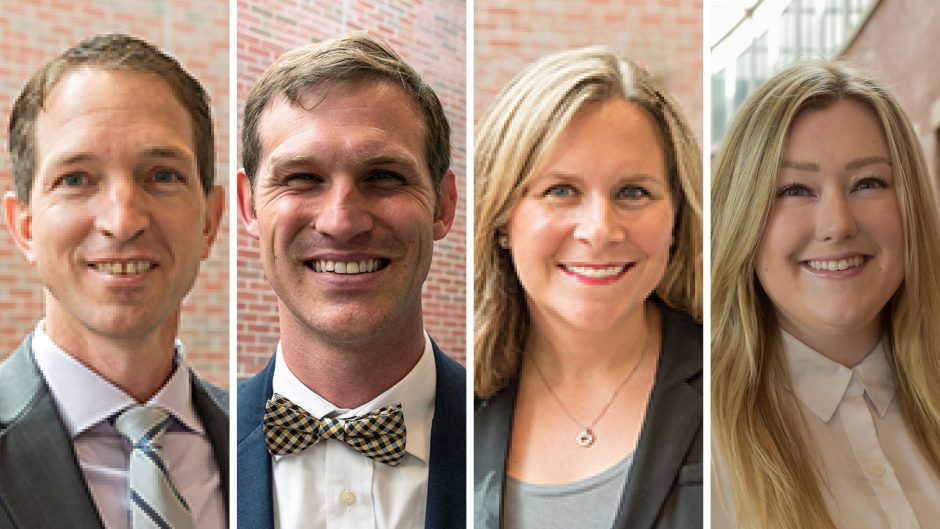
April 5, 2024
Faculty in the Management Department at the Robert J. Trulaske, Sr. College of Business are examining relevant issues through data-driven, unbiased research that is informing and influencing today’s businesses and policymakers.
Joel Andrus
Research from Joel Andrus, an assistant professor of management, examines the regulatory focus of individuals in new leadership positions; that is, what motivates these individuals and how that information can help organizations determine who’s best for the top job.
What Andrus found is that the increased vigilance and responsibility associated with becoming the new CEO is a better fit for individuals who are high in prevention focus, which means individuals who are motivated by a desire to avoid loss and achieve security.
John Arnold
While the reasons behind the increase in political activity are varied among organizations, a recent study from John Arnold, an assistant professor of management and Trulaske Dean’s Advisory Board Faculty Scholar, found these actions are having a profound impact on the amount and type of potential employees these organizations attract.
According to the study: “This is the first test of the effects of organizational political affiliation on job seekers. This is important because there is no evidence regarding whether or how the increased political activity of many organizations affect their ability to attract job applicants, which is crucial to organizations’ ability to select high-quality employees.”
Lauren Brengarth
A new study from an MU research team that includes Lauren Brengarth, an assistant professor of management, found leaders who were the most creative and innovative — not those who were resistant or reluctant to change — were most likely to survive because the leaders open to change demonstrate more willingness to listen, reflect on their own values and find new ways to build more inclusive teams.
Researchers also found that while not every leader described or demonstrated flexibility, empathy and learning, the vast majority of those surveyed showed a clear change in their perspective toward leadership and management that has endured and created both personal and structural workplace changes, such as new management styles, updated policies toward remote work and work-life balance.
Julia Stevenson-Street
In today’s business world, organizations are almost expected to engage in some type of corporate social responsibility (CSR) – be that responsibility involving the environment, ethical/human rights, philanthropy or economics. But how do employees feel about their companies’ CSR activities? Julia Stevenson-Street, an assistant professor of management, said to assume purely positive attitudes among employees may be overly simplistic.
With that in mind, Stevenson-Street recently delved into the attitudes employees have about their employer’s CSR activities and what she discovered is people feel positively about their company’s altruistic activities if they believe their employer is engaging in CSR for the right reasons. Interestingly, she did not find the opposite to be true.
Read more from the Robert J. Trulaske, Sr. College of Business


